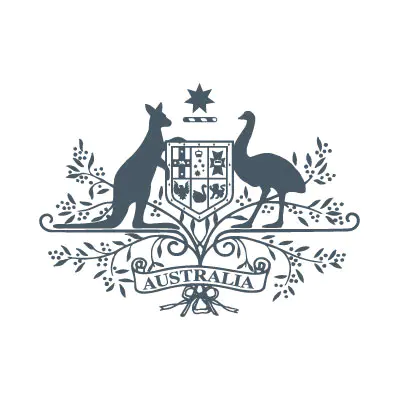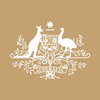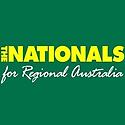
Radio interview – ABC Radio Sydney Breakfast with James Valentine
JAMES VALENTINE, HOST: Prime Minister, Anthony Albanese, joins us this morning. It is eight months since Labor won the Federal election and Anthony Albanese became the 31st Prime Minister of Australia. Lots of people texting us already with questions we want to raise. So, we’ll get straight into it. Anthony Albanese, good morning.
ANTHONY ALBANESE, PRIME MINISTER: Good morning. Good to be with you.
VALENTINE: Good to be with you. We were just pointing out that it’s the Year of the Rabbit in the Lunar New Year this year.
PRIME MINISTER: It sure is.
VALENTINE: Is it going to be the Year of the Rabbit for the Rabbitohs?
PRIME MINISTER: It’s an omen, of course it is. I regard anything as a positive sign in February. I always thought even when we were rubbish we would win the comp in February. So, I am an optimist.
VALENTINE: February hope springs eternal for everybody, really, doesn’t it, at this point? It’s going to be a big year. You’ve given yourself some enormous challenges. And I suppose one of the major ones to consider first is bringing the referendum to bear on the Voice, a constitutionally enshrined Indigenous Voice to the Parliament. Can you give a clear statement of what the Voice is?
PRIME MINISTER: The Voice is an advisory body which will be able to communicate to the Parliament and to the nation the views of Aboriginal and Torres Strait Islander people on matters that affect them. So, to improve their health, their education, their life expectancy, justice issues with incarceration rates of Indigenous Australians. It is simply that. Not a funding body. Not a body that will determine or be above the Parliament but will be able to do what it says it would do, a Voice for Indigenous Australians. And at the same time as part of that, we will recognise in the Constitution that Aboriginal and Torres Strait Islander people were Australia’s first peoples and that our great island continent we share goes back some 60,000 years. And that should be in our nation’s birth certificate.
VALENTINE: Do you believe that’s all we need to know to vote? Is that what we’re voting on? What you just said right then, is that what I would be voting yes or no on in a referendum?
PRIME MINISTER: That is what you would be voting on. The detail of the functioning of the Voice, how it would operate, all of that will be subservient to the Parliament, it will be the subject of legislation. So, over a period of time, for example, that might change just like other legislation changes. All that a constitutional enshrinement will do is make sure that there must be a body. It doesn’t characterise the detail of how that body should operate, that level of detail. That’s not the job of the Constitution. The Constitution is just to set out the principles of the way that Australia functions.
VALENTINE: And is that unusual, I suppose, is this what people are struggling to grapple with that, in fact, a referendum is something that we do to enshrine a principle, it’s not something we do to enshrine specific legislation?
PRIME MINISTER: A structure, that’s right. So, the way that Noel Pearson has put it is that you make a decision some time ago, probably around about or even before more than a century ago, a decision was made that we need a Harbour Bridge in Sydney, to go from north to south. But the detail of how it would be built, how many lanes it has, it changes over time, of course. There is a tunnel under it now and whether the trains would go across. All of that detail comes afterwards. That’s the principle of, ‘Do we need a bridge?’ And the principle here is, do we need to listen to Aboriginal and Torres Strait Islander peoples about matters that affect them? And what we know is that when we do, when Indigenous Australians involved in programs like the Indigenous Rangers program, like justice reinvestment programs, like some of the community health programs, you get better outcomes than if they don’t have that direct say and input.
VALENTINE: Right. And so, when Peter Dutton calls for detail, when other Australians call for detail, is your response to say you don’t need the detail, or do you think you’ll have to provide the detail?
PRIME MINISTER: Look, there is an enormous amount of detail out there already about how it might operate. But it’s not prescriptive, because it’s not something that is enshrined in stone, if you like, which is what the Constitution is, whereby it is difficult to change. But Tom Calma and Marcia Langton lead a process of having a full inquiry and a report to the Government that went to Cabinet not once, but twice under the Morrison Government, taken by Ken Wyatt, the former Minister. And it outlined in great detail what a structure might look like for local voices, the fact that it wouldn’t be justiciable, that is, so it would directly affect so, for example, where native title was of concern, then yes, there would be an obligation to consult the Voice. In other areas, there might be a preference to, but none of that would be subject to the court. Someone couldn’t say, ‘Oh, hang on, we haven’t been consulted about that issue. You need to stop the process’. No, it doesn’t do that. The processes of the Parliament can occur unimpeded. It’s just that there, of course, would be, common sense tells you that if you had this body, when matters directly affected Indigenous people, then you would talk to them.
VALENTINE: Yes. You would talk to them. They might say you should do ‘A’. That doesn’t mean you have to do ‘A’, right?
PRIME MINISTER: Correct. Absolutely correct. It has no impact on our democratic system and on our parliamentary processes. That remains completely intact. This is just an advisory body that would be able to advise on policy issues directly affecting them.
VALENTINE: Is this where the bridge analogy falls down somewhat, when you say there should be a bridge between one side of the river and the other, we know what a bridge is. It’s hard for people to understand what it is even though we can say what it is. It’s not something that we’re familiar with, a Voice to the Parliament.
PRIME MINISTER: No, which is why we are having a process of being able to go out there and talk with people about this. In a couple of weeks’ time, there’ll be barbecues around the nation, inviting the community to participate. It’s why in my local council we had a big forum at Marrickville Town Hall, attended by over 600 people talking about this detail as well. There’s plenty of time. I’ve said the second half of the year before people will have to vote. But people out there generous. They want to recognise Indigenous Australians in our Constitution, I believe. There will be fear campaigns. And the fear campaigns always have a similar characteristic about the detail. When I was asked what the question might look like, I went to Garma and gave the speech and outline what the question might look like last July. And the Opposition, for example, haven’t put forward any proposed alterations to the words that have been proposed.
VALENTINE: You’re hearing from Prime Minister, Anthony Albanese, this morning here on ABC Radio Sydney. Can I go to a very different issue? And I’m going to read you from The Australian’s editorial this morning. ‘The Albanese Government’s gas market intervention has increased the confusion in the industry, restricted supply to buyers and made worse the problem it was intended to solve. The net result so far of capping the wholesale gas price on the East Coast market at $12 a gigajoule for 12 months has been a collapse in the retail market because wholesale buyers cannot get supplies to on-sell to customers at any prices’. The Australian reported on Monday that Australia’s second largest energy retailer, AGL, has been unable to secure a contract supply of gas for 2023 and to cease taking new commercial and industrial customers. Do you need to refine your gas policy?
PRIME MINISTER: No, not at all. Of course, this is a reminder of why we needed to intervene in the market because the market wasn’t functioning. And some of those processes and prices, of course, were what was being locked in before the Parliament passed the legislation putting a price cap of $12 on gas. Now, the previous, a year before the Russian invasion of Ukraine, the average price was around about $9.70 and some 96 per cent of all gas deals were for under $12. There’s been no increase in the production costs for gas production. There was just a massive increase in the cost to consumers and to manufacturers because of the global impact of the Russian invasion of Ukraine.
VALENTINE: How do you explain what’s going on here then? What is The Australian referring to? How do you explain that?
PRIME MINISTER: Well, The Australian never supported our proposal. And it’s not the first time in Australia an editorial was critical of an intervention in a market.
VALENTINE: But they’re describing what’s happening, that there’s market confusion. I mean, AGL can’t get a contract. How are you going to deal with that?
PRIME MINISTER: Those processes have been worked through the ACCC, which advised us about the measures that we put in place in December through the Parliament. And the ACCC will continue to work on the code of conduct issues. And I’m confident that those issues will be resolved as they are worked through.
VALENTINE: Alright. So, nothing’s going to change in there and far as you’re concerned, the gas policy is working perfectly well?
PRIME MINISTER: The gas policy, you can’t make a major change like that and have an immediate flow through overnight, because contracts, the nature of them, many of them are over a period of time. And that’s why we had to intervene. Because previously, companies that were getting contracts for $10 or $12 were being asked to sign contracts for $35 or more. Now, that makes no sense to have such an extraordinary level of increase feeding straight into profits at a time when the impact of that would have been for manufacturers to not be able to survive. So, that’s why we intervened in the market. It’s a sensible intervention. It’s one that’s been overseen by the ACCC with the code of conduct.
VALENTINE: All right, a couple of other issues that listeners have raised, are we likely to see Julian Assange back in Australia anytime soon? We had three or four texts on this, people saying, ‘Could you put pressure on the US to ask them to stop trying to get the extradition? Why can’t the UK just release him? Isn’t he Australia’s issue now?’
PRIME MINISTER: Well, he’s not Australia’s issue, because it’s the US seeking to extradite someone under US law from the UK under UK law.
VALENTINE: But he is an Australian.
PRIME MINISTER: Yes. And I agree that enough is enough. It’s time this issue was brought to a close. And I’ve made that very clear to the US administration and to the UK Government as well, that my view hasn’t changed from the view I had when I was Opposition Leader, which is that it’s time that this was brought to a close.
VALENTINE: And so, are there movements? Is Australia actively involved in trying to bring it to a close?
PRIME MINISTER: Well, Australia’s is acting diplomatically. And the way that these issues are often brought to a close isn’t through, with due respect, isn’t through radio interviews, it’s by a concerted effort diplomatically. And the Australian Government’s position is clear and is being made very clear to our friends.
VALENTINE: All right. Funding for national institutions, I suppose this might be a budget issue, if we’re looking ahead that far, people who have a lot of concerns about the National Gallery in Canberra, Trove, for example, the digital archive, which is a beautiful thing that exists in in Australian life, runs out of funding this year, the National Film and Sound Archive, many of these institutions have lost a lot of support over the last decade, really. What kind of funding restoration are we going to see there?
PRIME MINISTER: We will deal with this as part of our budget processes. But you’re quite right, that the national institutions have been starved of funds. These are national assets that are a very important part about our fabric. And so, that is something that the Government will give consideration to in the lead-up to the May Budget.
VALENTINE: All right. Prime Minister, thanks for some time this morning.
PRIME MINISTER: Thank you very much. Wonderful to talk with you. And have a great day.
VALENTINE: Have a great day yourself. And thanks so much for joining us. That’s Anthony Albanese, Prime Minister of Australia.

